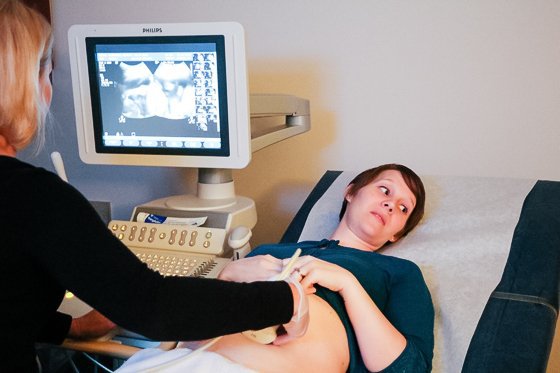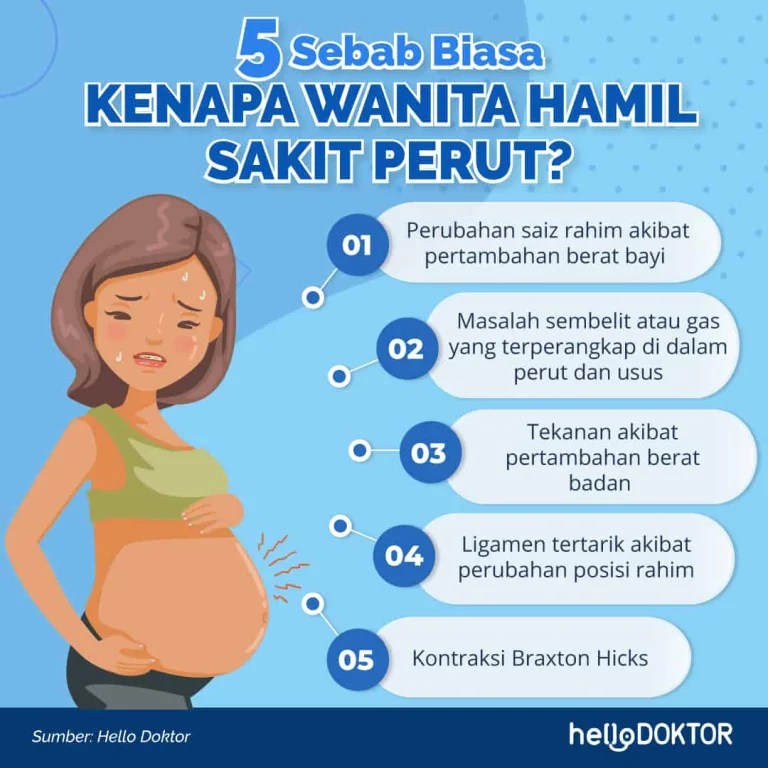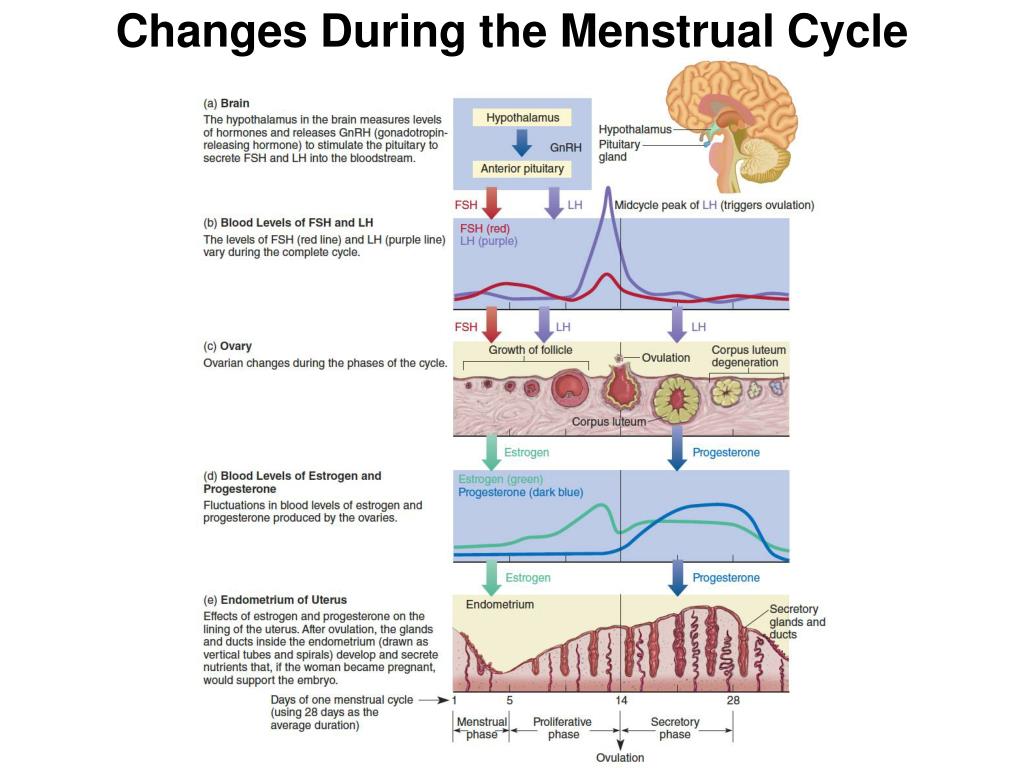Rest after miscarriage
7 things you must do after a miscarriage according to a gynaecologist
Listen to this article |
There are many things that can go wrong with a pregnancy and lead to a miscarriage. Just like any other loss, a miscarriage can be very emotionally overwhelming for a woman. In fact, it comes with mental trauma and physical distress.
That’s why it very important to take care of a few things right after a miscarriage to ensure faster recovery for the body and mind. We got in touch with Dr Surabhi Siddharta, a consultant obstetrician and gynaecologist at Motherhood Hospital, to tell you some measures women need to take after a miscarriage for the sake of your health.
1. Rest for a week if you had a miscarriage in your first trimester
Unfortunately, if you were in your first trimester when the miscarriage happen, you need to take rest for at least a week. “To regulate the bleeding it is always advisable to stay at home,” says Dr Siddhartha.
2. You’ll need bed rest if it happened between 6 to 8 weeks
Dr Siddharta suggests that complete bed rest for one-and-a-half months in this case. She also recommends consumption of iron-rich food and multi vitamins for faster recovery.
3. Avoid doing household chores
“Lifting things or doing heavy-duty household tasks might lead to more discomfort, so avoid chores as much as possible,” she warns.
4. Don’t skip medication
According to Dr Siddharta it is very important to take the medication prescribed by your doctor on time and complete the entire course so as to avoid infections.
5. Avoid sexual intercourse
Right after a miscarriage, the uterus is very sensitive therefore she recommends avoiding sexual intercourse completely until the bleeding doesn’t stop. “I recommend a gap of at least six weeks from the miscarriage for sexual intercourse to avoid complications,” Dr Siddhartha says.
6. Don’t douche
“Douching after a miscarriage is a complete no-no. Plus the woman should also avoid using vaginal washes during this time,” she says.
7. No intense workout sessions
This is the time when you should take rest to recover from the physical trauma of a miscarriage. Dr Siddharta says: “Gyming, weight training, HIIT, etc are not recommended right after a miscarriage. If you want to exercise then you can opt for yoga and some breathing techniques. They will also keep you stress free.”
Being in touch with your gynaecologist during this time is important
“Until 20 weeks a miscarriage can happen and you need to be in constant touch with your doctor untill you are fully recovered,” explains Dr Siddhartha. Also, you need to watch out for complications like heavy bleeding, foul smell from your vagina, fever, and severe abdominal pain.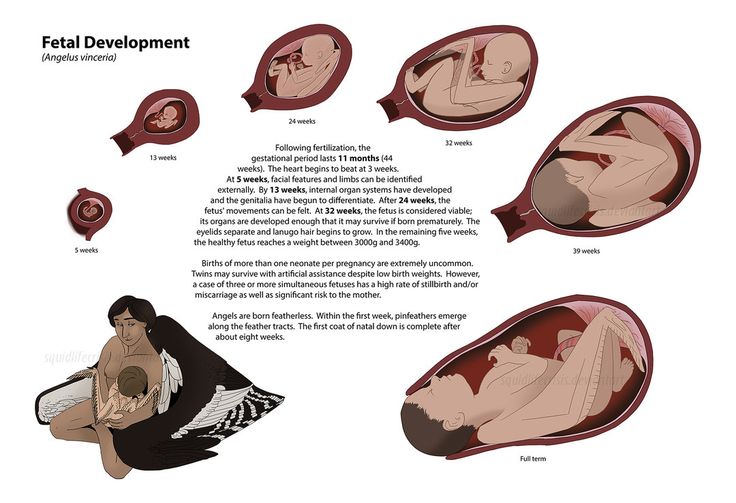 If you experience any of these symptoms, rush to the hospital immediately.
If you experience any of these symptoms, rush to the hospital immediately.
“Miscarriages are normal these days due to stress and our lifestyle. So even if it happens then you should not worry because, after a couple of months, you can start planning your family again,” she concludes.
What Happens After a Miscarriage? An Ob-Gyn Discusses the Options.
Miscarriage, the loss of a pregnancy that’s in the uterus, is common. It happens in about 1 in 10 women who know they’re pregnant. But many people don’t know what to expect afterward.
The vast majority of miscarriages happen in the first trimester, before 13 weeks of pregnancy. Most occur before 10 weeks. In this article, I’ll discuss the treatment options for first-trimester miscarriage, also called early pregnancy loss. Second-trimester miscarriage usually requires different treatments.
Here’s what to know about care and recovery.
There are three main treatments for early pregnancy loss. The goal for all three is to remove any pregnancy tissue left in the uterus. There are two nonsurgical treatments: expectant management (letting the tissue pass on its own) and medication. The third treatment is a surgical procedure called dilation and curettage (also known as D&C or suction curettage).
There are two nonsurgical treatments: expectant management (letting the tissue pass on its own) and medication. The third treatment is a surgical procedure called dilation and curettage (also known as D&C or suction curettage).
In many cases, patients can choose the option they prefer.
Expectant management is giving your body time to pass the tissue on its own. This doesn’t involve medication or surgery. Some women choose this because it’s the most natural option, but it is more unpredictable than other treatments.
Most women pass the tissue within 2 weeks of a miscarriage diagnosis, but it can take longer. If it takes too long, your ob-gyn may recommend medication to start the process. (Once the process starts and cramping and bleeding begin, most of the tissue passes within a few hours. More on that below.)
Sometimes, the body doesn’t pass all the tissue. When this happens, another treatment is recommended, usually a D&C. Expectant management is most likely to work when you already have some bleeding and cramping.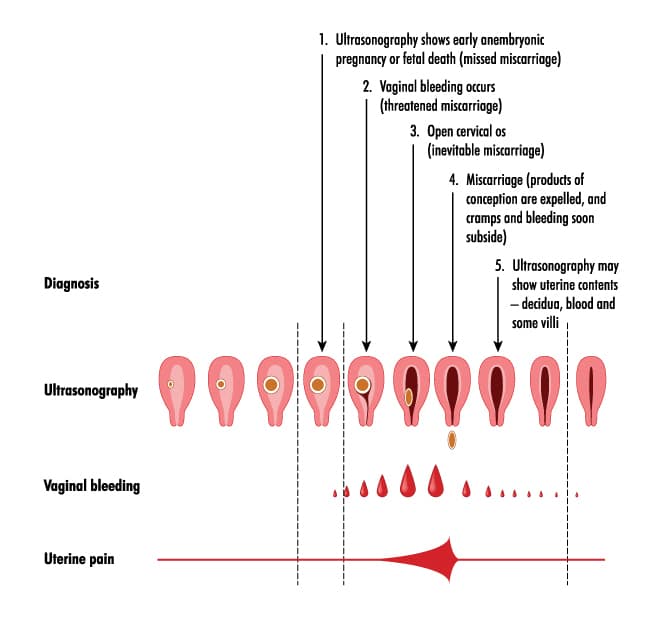 This means your body has begun the process of passing the tissue.
This means your body has begun the process of passing the tissue.
Medication works faster and is more predictable. Some women choose medication that helps their body remove any leftover tissue. These drugs are absorbed through the cheek in the mouth or through the vagina. Cramping or bleeding usually starts within a few hours. Most women pass the tissue within 48 hours and don’t need any other treatment. (Some women may still not pass all the tissue and may need a surgical procedure.)
Medication gives you more control over the timing of the tissue passing. And it’s often quicker than waiting for the tissue to pass on its own.
Some women like to take the medication in the morning, so the process doesn’t start overnight. And some women like to have a support person, such as a friend or family member, with them when they take the medication.
You’ll have a similar experience whether the tissue passes on its own or you take medication. You’ll have bleeding and cramping that are heavier than your normal period.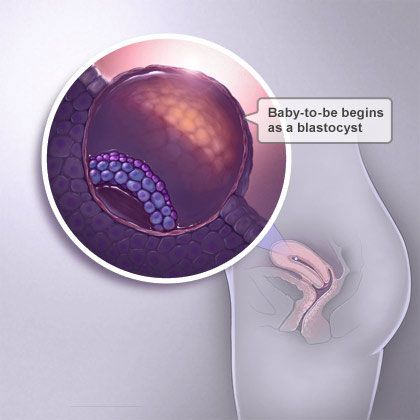 The pregnancy tissue may look like large blood clots, or it may look white or gray. It does not look like a baby. The process can be painful, and ob-gyns may prescribe medication to help with this discomfort. Your ob-gyn may also suggest over-the-counter pain medication. Talk with your ob-gyn about pain relief options.
The pregnancy tissue may look like large blood clots, or it may look white or gray. It does not look like a baby. The process can be painful, and ob-gyns may prescribe medication to help with this discomfort. Your ob-gyn may also suggest over-the-counter pain medication. Talk with your ob-gyn about pain relief options.
Most of the tissue passes within 2 to 4 hours after the cramping and bleeding start. Cramping usually stops within a day. Light bleeding or spotting can go on for 4 to 6 weeks. Two weeks after the tissue passes, your ob-gyn may do an ultrasound exam or other tests to make sure all the tissue has passed.
A D&C is the most predictable treatment. During a D&C, your ob-gyn passes a small tool through the cervix and into the uterus to remove the tissue. Some women choose this option because they want a faster, more certain treatment. And if you’re already bleeding heavily, it’s the safest option.
Some ob-gyns do D&Cs in an operating room using general anesthesia, which means you’ll be asleep. Some offer a form of pain relief called sedation, where you will be awake but comfortable. Others do the procedure in a normal exam room, with an injection of drugs that block pain in a specific area. Women often have some bleeding and intense cramping during a D&C. They usually have little discomfort afterward.
Some offer a form of pain relief called sedation, where you will be awake but comfortable. Others do the procedure in a normal exam room, with an injection of drugs that block pain in a specific area. Women often have some bleeding and intense cramping during a D&C. They usually have little discomfort afterward.
Light spotting or bleeding can last up to a month. An antibiotic is prescribed to prevent infection. Other complications are rare, and most women don’t need any follow-up appointments.
Whichever option you choose, call your ob-gyn if you have very heavy bleeding, a fever, or feel unwell. Dangerous bleeding and infection are a risk of all treatments, but these problems are rare. Call your ob-gyn right away if you have any of these symptoms:
-
Your bleeding soaks through more than two large pads in an hour for 2 hours or more. This much bleeding is dangerous and needs immediate care.
-
You have a temperature higher than 100 °F.

-
You have chills, severe pain, or any other symptoms that concern you.
Physical recovery is usually quick. Most women resume their regular activities a day or two after they pass the tissue or have a D&C. For some, nausea and other pregnancy symptoms stop before their ob-gyn diagnoses a miscarriage. For others, these symptoms go away a few days after the tissue passes.
To keep your infection risk low, don’t put anything into your vagina for a week—no douching (which is never a good idea at any time), vaginal sex, tampons, or menstrual cups. You can use pads to absorb the bleeding. Most women have their first period about 2 weeks after any spotting or light bleeding ends, which is usually about 2 to 3 months after you pass the tissue or have a D&C.
People have different emotional reactions. Some women feel sadness or grief. Others may feel relief. Some may feel a mixture of emotions.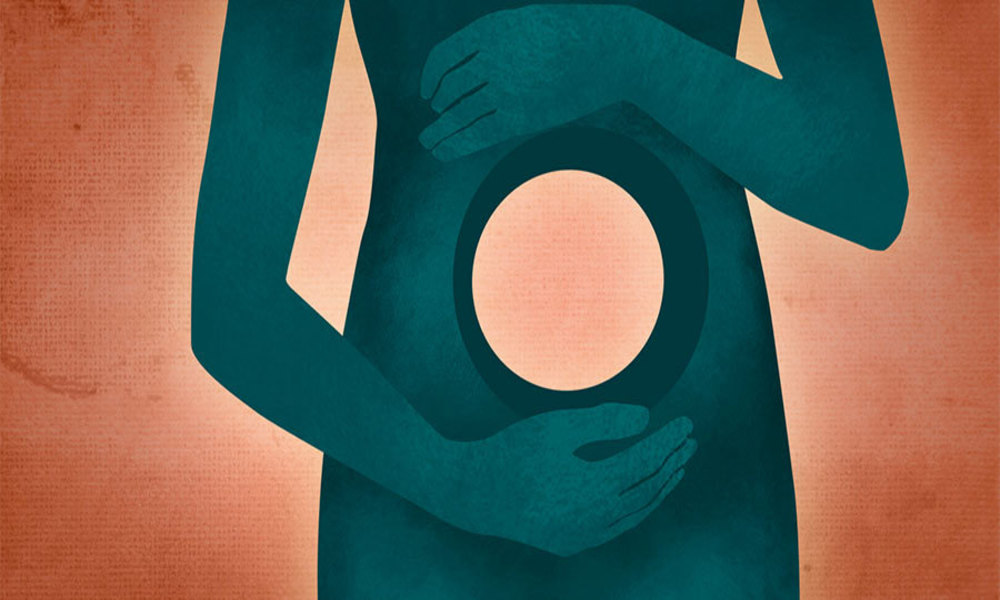 All these feelings are normal, and it’s important to allow yourself time to process them.
All these feelings are normal, and it’s important to allow yourself time to process them.
Talking about these feelings with friends, family, your ob-gyn, or a mental health professional can help. If you feel depressed or are thinking of hurting yourself, tell your ob-gyn or another doctor right away. Support groups and resources, such as Share Pregnancy & Infant Loss Support, may be helpful too.
Miscarriage isn’t your fault. Women often worry that they somehow caused their miscarriage. This is not the case. Physical activity, stress, and sex don’t cause miscarriages. Most happen because the pregnancy wasn’t developing normally. Often, the egg or sperm develops with more or fewer chromosomes than normal, which can lead to miscarriage. This is a random event that you cannot control.
Most women can have a healthy pregnancy after a miscarriage. Talk with your ob-gyn if you have concerns. Your ob-gyn can help ease your fears, answer any questions, and talk about preparing for your next pregnancy.
Published: June 2022
Last reviewed: June 2022
Copyright 2023 by the American College of Obstetricians and Gynecologists. All rights reserved. Read copyright and permissions information.
This information is designed as an educational aid for the public. It offers current information and opinions related to women's health. It is not intended as a statement of the standard of care. It does not explain all of the proper treatments or methods of care. It is not a substitute for the advice of a physician. Read ACOG’s complete disclaimer.
When can you get pregnant after a miscarriage - the opinion of geneticists
No matter how scary it sounds, miscarriages are common. One in four women experience this condition while trying to get pregnant. In most cases, the failed mother does not even know about the irreversible changes that have occurred in her body, since they occur before the conception became known. Couples who know about the misfortune that happened are interested in when it is possible to become pregnant after a miscarriage, and what conditions must be observed in order to endure and give birth to a healthy baby.
5 things you should know about miscarriage
Fortunately, many women who experience early and late miscarriages go further in their desire to become a mother. We offer to get acquainted with the facts that confirm the frequency of miscarriage and speak about the normal fertility of a woman in the subsequent period:
1. Very early miscarriages that occur shortly after implantation of the embryo are called chemical pregnancy. During this period, a woman may not know that she is pregnant;
2. Most miscarriages occur within the first three months after conception. After the 13-week mark and the end of the first trimester, the likelihood of spontaneous abortion decreases;
3. Miscarriages in the second trimester are rare. This is 1-5% of the number of all pregnancies. If a spontaneous abortion occurred after 20 weeks, it is customary to talk about a stillbirth;
4. Trying to figure out how long it takes to get pregnant after a miscarriage, study all the possible reasons why the misfortune happened.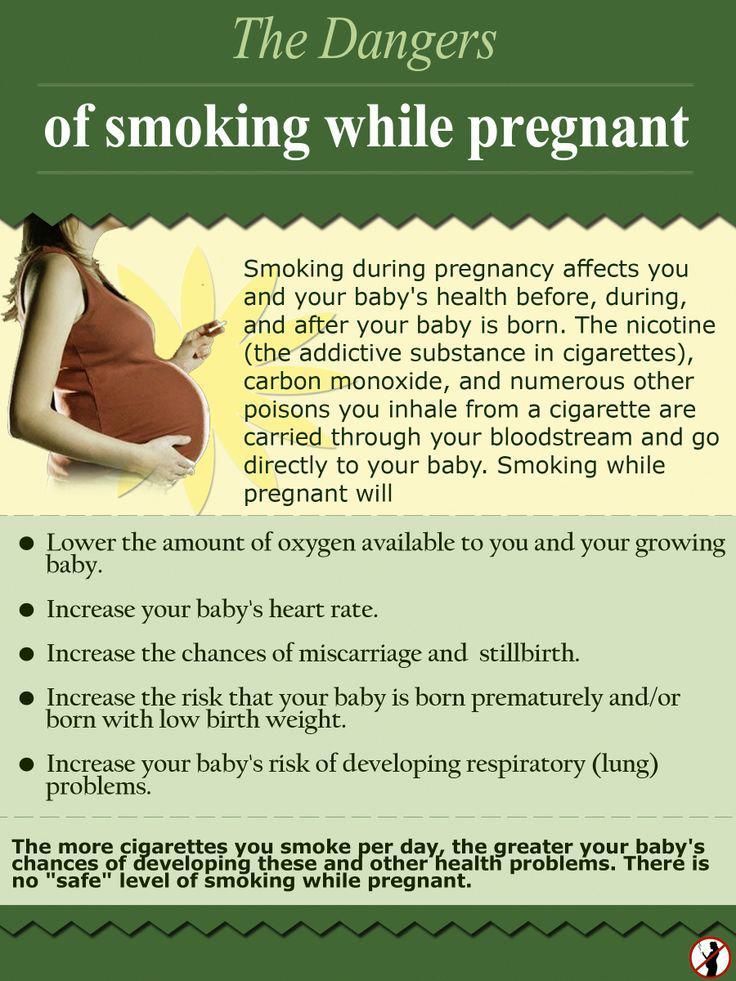 In most situations, it is the result of chromosomal abnormalities in the fetus. This may be due to the action of the sperm or the egg. The second option is more likely, since the eggs are at rest, maturing in the ovaries for many years, while the sperm is constantly being renewed;
In most situations, it is the result of chromosomal abnormalities in the fetus. This may be due to the action of the sperm or the egg. The second option is more likely, since the eggs are at rest, maturing in the ovaries for many years, while the sperm is constantly being renewed;
5. More than 85% of women after a late miscarriage can get pregnant again and give birth to healthy children. But many of them are in a difficult psychological state, which can create a real problem for conception. American researchers believe that it is very important to focus on self-soothing techniques, meditation, and learn to act through negative thoughts. The support of loved ones is very important during this period.
How long can you get pregnant after a miscarriage, and how long should a woman look after an accident? Each case is unique, and when a woman decides to conceive again depends on many factors. If there was a molar or ectopic pregnancy, when asked when it is possible to become pregnant after a miscarriage, doctors in most situations recommend waiting until the menstrual cycle is restored (at least one period after a miscarriage). But this is not the ultimate truth.
But this is not the ultimate truth.
When can you get pregnant after a miscarriage - research, experiments, observations
How long should a woman wait to try to conceive again? Recent studies by scientists from the National Institute of Child Health and Human Development (USA) have shown that by trying to conceive within 3 months after an accident, couples increase the success of their attempts by 71% and subsequently give birth to healthy children. The study, which was based on the conceptual question - is it possible to get pregnant after a miscarriage immediately or should you wait - in the example of 1000 couples, it showed that timing matters.
765 couples tried to get pregnant in the first 90 days after a miscarriage and in 77% of cases they conceived and gave birth to a healthy baby. For those couples who waited longer than the specified period, only in 23% of cases a child was born. This proves - finding out how much you can get pregnant after a miscarriage, cast aside doubts - try to conceive. Scientists have proven that couples should not wait a certain period. The main thing is the psychological and physiological readiness for pregnancy.
Scientists have proven that couples should not wait a certain period. The main thing is the psychological and physiological readiness for pregnancy.
How long before ovulation after a miscarriage
A miscarriage is usually accompanied by bleeding, but this cannot be considered a menstrual period. The discharge of blood is a sign of uterine cleansing. The first period will pass approximately two weeks after the first ovulation. Ovulation can be delayed if there is a high level of pregnancy hormone in the blood. On average, it occurs 14-20 days after the loss of the fetus. It is important not to try to conceive until the hormonal background is restored and the pregnancy hormone is close to zero.
It will not be superfluous to take a pregnancy test and wait until the result is negative. This is the only way to make sure that the uterus does not contain residual effects of a failed pregnancy. In some cases, the uterus may contain foreign tissue, which can lead to fertility problems and cause abnormal bleeding. But if the level of hCG is zero, and the woman feels good, the dilemma of whether it is possible to become pregnant after a miscarriage should not worry her. The answer is obvious - yes.
But if the level of hCG is zero, and the woman feels good, the dilemma of whether it is possible to become pregnant after a miscarriage should not worry her. The answer is obvious - yes.
If a woman has a history of two or three miscarriages in a row, this is called a recurrent miscarriage. In this case, you should contact the services of doctors for a detailed study of the situation in order to prevent its recurrence. If after the examination no serious violations are found, the chances of having healthy offspring are high.
Treatment - is cleaning required
The main goal of treatment during or after a miscarriage is to prevent bleeding and infection. The earlier the pregnancy, the more likely it is that the body will get rid of the embryonic tissue on its own without the use of additional medical procedures. If this does not happen, the most common method to stop bleeding is cleaning (curettage, curettage, dilatation).
A surgical procedure is often performed after a miscarriage in the first trimester.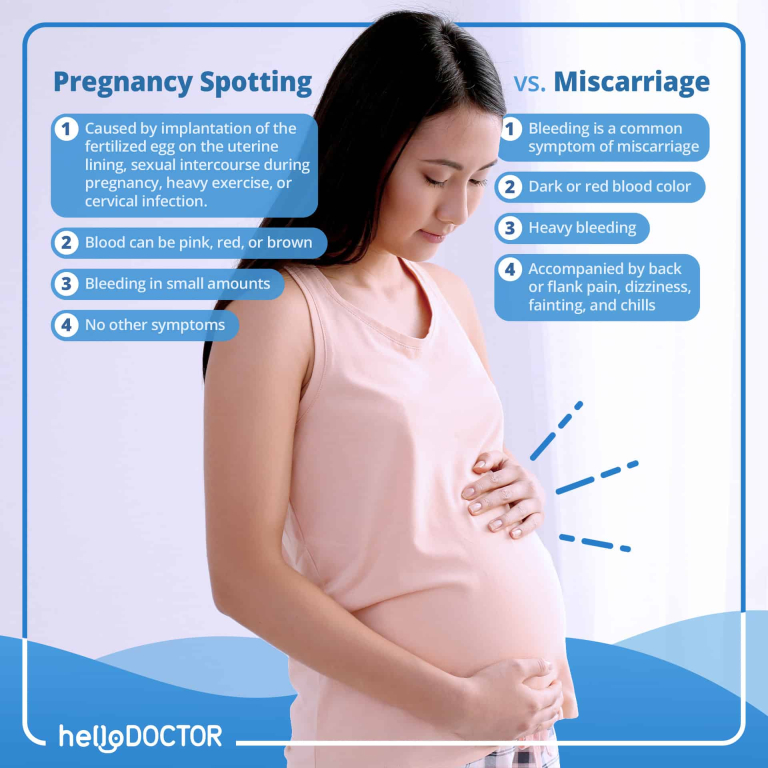 The doctor dilates the cervix, scrapes or removes the contents. Curettage can be performed by scraping the walls of the uterus with a curette or a suction device (vacuum aspiration). When worried about when you can get pregnant after a miscarriage and curettage, study the information more carefully or ask your doctor a question.
The doctor dilates the cervix, scrapes or removes the contents. Curettage can be performed by scraping the walls of the uterus with a curette or a suction device (vacuum aspiration). When worried about when you can get pregnant after a miscarriage and curettage, study the information more carefully or ask your doctor a question.
About 50% of women who have a miscarriage do not have a curettage. If a spontaneous abortion occurred before the 10-week period, then the probability of self-cleansing of the uterus is high. If later, most likely the miscarriage will be incomplete, which requires mandatory cleaning. Also, curettage is necessary after an abortion in order to clean the uterine cavity from foreign inclusions. In any case, expectant tactics should be reasonable, you must trust the doctor's opinion.
Risks after curettage
If there is no doubt when it is possible to get pregnant after a miscarriage, and the terms determined by doctors without cleaning and curettage are the minimum value, then how are things going with curettage? Does the procedure affect conception and can it cause fear of a repeated miscarriage? To figure out when you can get pregnant after a miscarriage and curettage, let's figure out what complications minimally invasive surgery can provoke.
Complications after cleansing
Cleaning, like any surgery, can cause some complications.
In the short term, these are:
- excessive bleeding shortly after surgery;
- uterine perforation;
- trauma of the cervix;
- infectious process and pain in the pelvic area.
In the long term, with a history of cleansing, it is possible:
- Development of chronic infection;
- Adhesions (tissue scarring) inside the uterus.
After the operation, the patient may experience spastic pain. You can remove them with painkillers recommended by the doctor. You can use drugs based on paracetamol (for example, Panadol) or a non-steroidal anti-inflammatory group (Brufen, Nurofen). Even with cleansing without complications, bleeding is observed for several days after the procedure. This period is different in duration for each woman. If severe bleeding develops, due to which the pad gets wet through every 30-60 minutes, you should immediately consult a doctor.
When can you get pregnant after a miscarriage and a purge - we answer questions
When asked when you can get pregnant after a miscarriage and curettage, and after how many days you can have sex, the answer is quite objective. Intimacy is available at least two weeks later, after the bleeding stops and the tissues begin to return to normal.
It is imperative to consult a doctor if you develop a fever, have vaginal discharge with an unpleasant odor, abdominal and pelvic pains are gaining more intensity, bleeding is increasing. Normally, blood can flow for about two weeks after cleansing with a gradual decrease in the amount of discharge. For several days, a woman's breasts will be particularly sensitive.
Surgical treatment of miscarriage does not carry a greater risk of fertility problems, in most situations it is not necessary to calculate when it is possible to become pregnant after an early miscarriage with a purge or when it is possible to conceive after a late spontaneous abortion with curettage. As soon as the body returns to normal, ovulation and the menstrual cycle are restored, a woman can begin to attempt to conceive a baby if she is emotionally ready for this. The period before conception must be devoted to restoring the body - to organize a healthy meal, use the vitamins recommended by the doctor, give up bad habits, and stabilize the rest and sleep regimen.
As soon as the body returns to normal, ovulation and the menstrual cycle are restored, a woman can begin to attempt to conceive a baby if she is emotionally ready for this. The period before conception must be devoted to restoring the body - to organize a healthy meal, use the vitamins recommended by the doctor, give up bad habits, and stabilize the rest and sleep regimen.
Miscarriage. What to do after a miscarriage?
When a woman finds out about her pregnancy, she changes her rhythm of life, especially if the pregnancy is desired. However, depending on many circumstances, miscarriage may occur, that is, a natural termination of pregnancy. Statistics say that up to 20 percent of pregnancies end in pathological abortions. Often a woman may not know that she was pregnant, as a miscarriage sometimes occurs at a very early stage and seems to be just a normal delay in menstruation followed by heavy discharge.
If a woman finds out that she is pregnant and wants to become a mother, she should be very attentive to her condition.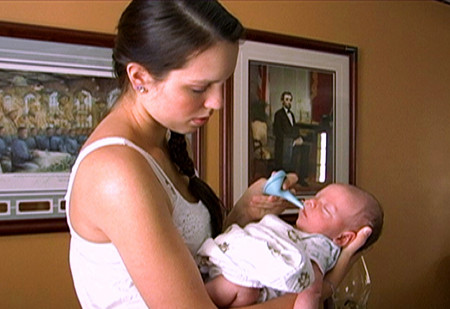 The threat of miscarriage often occurs in the early stages of pregnancy and therefore it is necessary to know what symptoms and signs precede a sudden miscarriage.
The threat of miscarriage often occurs in the early stages of pregnancy and therefore it is necessary to know what symptoms and signs precede a sudden miscarriage.
Signs
The main sign of a suspected miscarriage is bleeding from the uterus. They happen not abundant, pale scarlet or gray-brown. The discharge most often gradually increases and is characterized by sudden spasms or pulling pains in the lower abdomen. These symptoms may last for some time.
The pains are often so mild that the woman simply does not pay attention to them. They are able to be interrupted, and the woman simply forgets about them, especially if the discharge also stopped, and before that they were insignificant. Meanwhile, the very first symptoms should alert you and you should urgently go to the gynecologist for examination and consultation. Even if the process has stopped, after a few days you can feel a sharp deterioration in health, and then you can no longer save the life of the unborn child.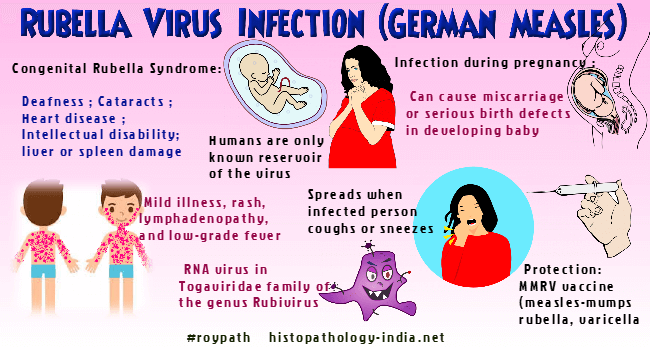 Be sure to pay attention to what exactly comes out with the discharge, if there are tissue fragments, it means that miscarriage has already occurred. Therefore, one should not hesitate to go to the doctor, the fetus may come out, in whole or in parts, there may be white particles or a round gray bubble. When the body is completely cleansed, the pain will subside, but before that it may continue for some time.
Be sure to pay attention to what exactly comes out with the discharge, if there are tissue fragments, it means that miscarriage has already occurred. Therefore, one should not hesitate to go to the doctor, the fetus may come out, in whole or in parts, there may be white particles or a round gray bubble. When the body is completely cleansed, the pain will subside, but before that it may continue for some time.
Terms of miscarriages
A miscarriage is classified as early if it occurred before twelve weeks from the onset of pregnancy. Starting from the 22nd week, if a spontaneous miscarriage has occurred, it is considered late. If the termination of pregnancy occurred before thirty-seven weeks, then this is already called premature birth. All subsequent fetal rejections are called term births and are generally considered normal, since during this period, mostly able-to-survive children are born. In modern medicine, children born after 22 weeks are nursed and subsequently do not differ from those born at term with normal weight.
Types of miscarriages
Specialists have identified several types of miscarriages.
- Complete or inevitable - characterized by pain in the lower back and dilatation of the cervix, hemorrhages from it. The fetal membrane necessarily bursts, and the pregnancy is terminated. The fetus comes out of the uterus, and all discomfort in the form of pain and bleeding stops.
- Miscarriage is different in that the fetus died, but remained in the mother's body. This can be detected by a doctor when examining a woman and when listening to the fetal heartbeat.
- Repeated miscarriage is rare, it occurs only some time after the first and can occur up to three times in a row in the early stages.
Causes of spontaneous abortion
The vast majority of women, having learned about their pregnancy, want to give birth to a healthy baby.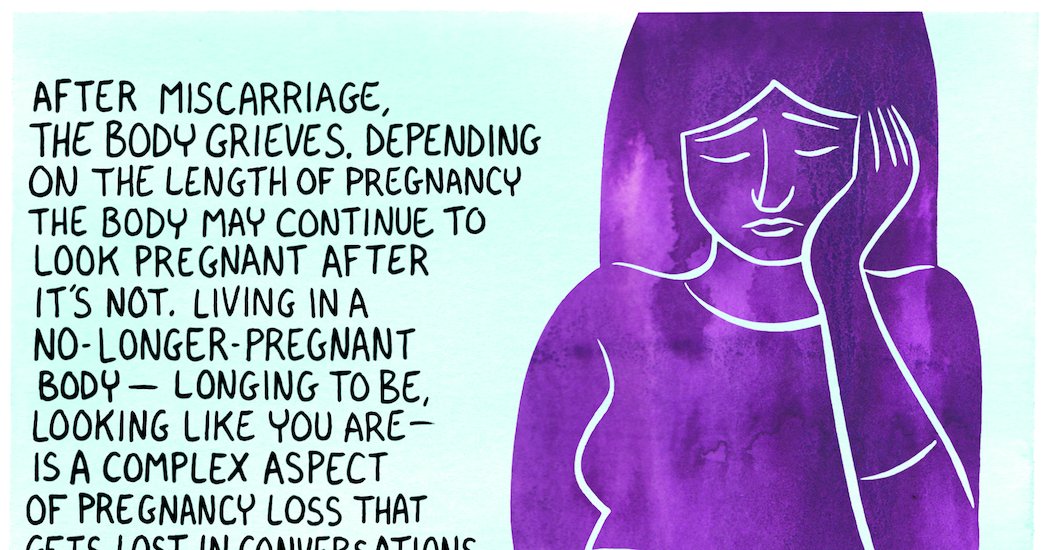 And if there is a spontaneous miscarriage , then for a failed mother this is a real tragedy. Many, having experienced an abortion, try to conceive a child faster again, but first you need to know the reasons for what happened in order to save the fetus in the future. According to statistics, the largest number of miscarriages occurs precisely in the early stages.
And if there is a spontaneous miscarriage , then for a failed mother this is a real tragedy. Many, having experienced an abortion, try to conceive a child faster again, but first you need to know the reasons for what happened in order to save the fetus in the future. According to statistics, the largest number of miscarriages occurs precisely in the early stages.
There are several reasons for this:
- Violations in genetics.
This is the most common cause of miscarriage. This is not due to heredity, it is a consequence of the mutation of parent germ cells, which accidentally ended up in unfavorable conditions. This is also the influence of radiation, poisoning, viruses, that is, temporary situations that affected the quality of germ cells. The body thus gets rid of a weak non-viable fetus. It is impossible and unnecessary to prevent such spontaneous abortion. It is only necessary, having decided to become pregnant, to try to cleanse your body of possible harmful influences.
- Hormonal disorders
The cause of miscarriage at a very early stage also lies in the lack of the hormone progesterone, or in the fact that a woman has an excess of male sex hormones that suppress the production of estrogen and progesterone in her body. In this case, the fetus can be saved medically by administering the necessary medicines to the woman. The work of the adrenal glands, as well as the thyroid gland, affects the production of hormones, so a lot depends on the work of these glands throughout the pregnancy process.
- Immunological causes .
In this case, the vitality of the fetus is directly affected by the Rh conflict. The embryo will inherit the positive Rh of the man, and if the partner has a negative Rh, then her body simply rejects cells that are foreign to him. A similar situation can be prevented by injecting the expectant mother with a variety of progesterone, a process called immunomodulation.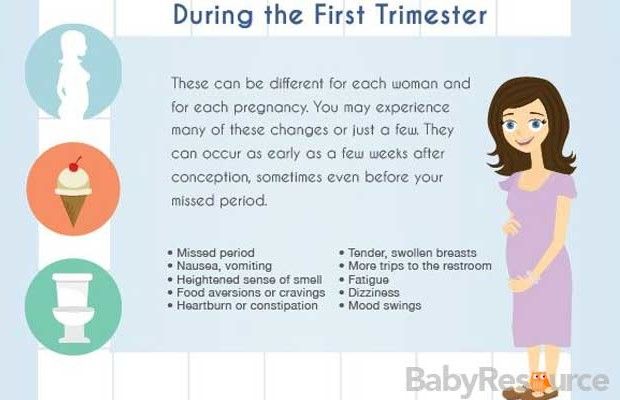
Sexually transmitted infections such as toxoplasmosis, syphilis, trichomoniasis, chlamydia and others are of great danger. External infection: bacteria and viruses infect the fetal membranes, and the body will inevitably reject the embryo. Therefore, before becoming pregnant, you should be examined to know for sure that there are no infections, and if the result is positive, undergo treatment.
In addition, all inflammatory processes, various diseases of the internal organs, which are accompanied by a persistent high temperature, can also lead to unexpected rejection of the fetus. Rubella is especially dangerous, and viral hepatitis is common. But even a sore throat, mild pneumonia, appendicitis sometimes play a key role and lead to a miscarriage, so the expectant mother must undergo a thorough examination even before the child is conceived, and then beware of all kinds of infections and weakening of the body.
- Medical abortion.

If a woman had an abortion in a hospital and then became pregnant and decided to give birth, then there is a danger that she will have a miscarriage. Abortion is a stress factor for the body, ovarian dysfunction is often observed, inflammatory processes in the female genital organs can begin, and all this will lead, at best, to miscarriage and subsequent repeated miscarriages, and at worst, to infertility. Therefore, you need to think very seriously before going for an abortion.
- Medicines and certain herbs.
Pregnant women should not take any medication at all, especially during the first three calendar months. Medicines and herbs can cause various defects in the fetus, which in turn will lead to its rejection. Analgesics and uncontrolled hormonal contraceptives are especially dangerous. Parsley and nettle should be eaten with caution - they cause a high tone of the uterus, which in turn can reject the fetus.
- Stress.
It is no coincidence that in ancient times pregnant women were protected from unrest, they were created comfortable conditions, and they tried to give as many positive emotions as possible. Now the direct dependence of the health of the unborn baby on the mental state during pregnancy has already been proven. Any stress, fear and overstrain can cause an unexpected termination of pregnancy. If you have a problem (death of a loved one, divorce, etc.), you need to find sedatives with the help of a doctor, they will help you cope with this period.
- Unhealthy lifestyle.
Of course, the intake of alcoholic beverages, an unhealthy lifestyle, smoking, even coffee consumption in large quantities, improper diet - all this can lead to a transient miscarriage. Therefore, the expectant mother should prioritize and change her rhythm of life in advance in order to give birth to a healthy child.
- Sexual intercourse, falling, heavy lifting.
All of these factors can affect the fetus, so you should protect yourself and your baby by avoiding these activities.
What to do after a miscarriage?
Having experienced the tragedy of losing a child, parents often intend to immediately conceive a new baby, but they are afraid that everything will happen again. In this case, you do not need to make independent decisions, but consult a doctor. And first of all, it is necessary to identify the cause that led to the miscarriage. For this, the expectant mother needs to undergo as thorough an examination as possible.
If no obvious cause is found, the fetus most likely has a chromosomal abnormality. In this case, you should not worry, since the next conception will occur with a different set of chromosomes, which means that there will be no repeated miscarriage. If the miscarriage was repeated, it is necessary to contact a geneticist and conduct a study of the set of chromosomes of both parents. If it turns out that the cause was an infection, then it is necessary to fully recover. If we are talking about sexual infections, then both parents need to undergo therapy. It is necessary to take tests for hormonal studies, hemostasis systems and determine the immune status.
If it turns out that the cause was an infection, then it is necessary to fully recover. If we are talking about sexual infections, then both parents need to undergo therapy. It is necessary to take tests for hormonal studies, hemostasis systems and determine the immune status.
After a miscarriage, should be treated, if necessary, and pause between conceptions. During pregnancy, you should not take medications to prevent re-spontaneous pathological termination of pregnancy. Therefore, you can become pregnant only after the end of the course of treatment. If the cause was hormonal abnormalities, then the expectant mother should take special drugs to stabilize the background, and at this time she should never become pregnant. During the pause, you need to choose contraceptives with the help of a doctor. You can go to a specialized clinic where you will be prescribed a full course of rehabilitation.
The first week after a miscarriage women often experience pain in the lower abdomen, heavy bleeding, so you should refrain from sexual intercourse with a man. If there is severe bleeding, acute pain in the lower abdomen, convulsions, high fever, palpitations, nausea, vomiting, then you should immediately consult a doctor to identify the cause of this condition. It is necessary to plan a subsequent pregnancy not earlier than three months after this situation, but preferably six months later. Until that time, it is worth reconsidering your outlook on life, giving up hard work, eating right and wisely, taking vitamins, exercising, losing weight if you are overweight, stop smoking, drinking alcohol, think over your daily routine.
If there is severe bleeding, acute pain in the lower abdomen, convulsions, high fever, palpitations, nausea, vomiting, then you should immediately consult a doctor to identify the cause of this condition. It is necessary to plan a subsequent pregnancy not earlier than three months after this situation, but preferably six months later. Until that time, it is worth reconsidering your outlook on life, giving up hard work, eating right and wisely, taking vitamins, exercising, losing weight if you are overweight, stop smoking, drinking alcohol, think over your daily routine.
It is very important during this recovery period to have a positive attitude and confidence that the next attempt will be successful. It is more difficult to do than to say, because after a miscarriage the woman is in a depressed state and is afraid of a repetition of the situation. You can’t get hung up on your problem, during this period it’s better to do some favorite thing, relax, change the situation, travel, visit the city more often.